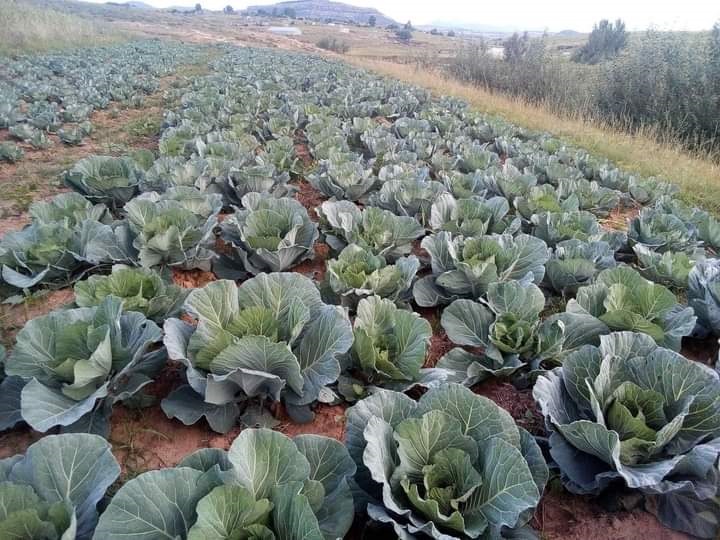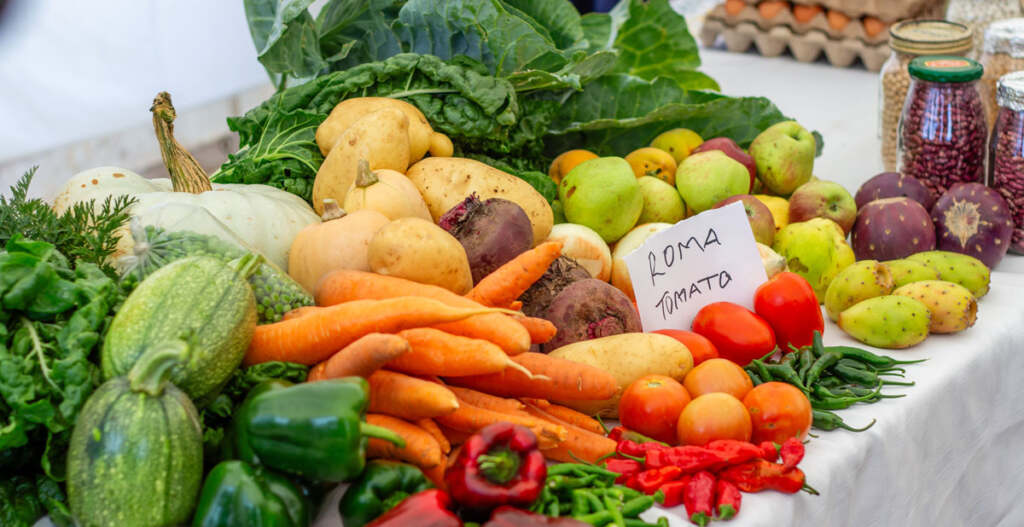…Sees himself as an agribusiness tycoon
Kabelo Masoabi
Rural youth are the future of food security yet many young people still look down on the dirt-centred industry and rural communities, but Lebaka dreams differently.
While most of the world’s food is produced by (ageing) smallholder farmers in developing countries, Lesotho included, older farmers are less likely to adopt the new technologies needed to sustainably increase agricultural productivity and ultimately feed the growing population while protecting the environment.
This is according to a joint study by the Food and Agriculture Organization and the Technical Centre for Agricultural and Rural Cooperation (Youth and Agriculture: Key challenges and concrete solutions).
The study further shows that – when there is a supportive environment – youth can find innovative ways to create a future for themselves and contribute to the societies and communities in which they live.
Felepa Lebaka is a young farmer from Leribe who is optimistic about making a fortune in agribusiness which he describes as a crucial route to changing perception and creating employment.
He noted that Lesotho being amongst the least developed country, and has struggled a lot in sectors like agriculture due to lack of financial support, things were starting to change.
“In the minds of many young people, farming is a poor man’s work that involves backbreaking labour and insufficient financial gains. But, I have learnt from several trainings that agriculture can be an exciting and economically rewarding business venture and can attract investments,†he said indicating that currently, the youth lack access to credit and many other productive resources necessary to venture into agriculture… “but even such hurdles can be overcome,†he said.
Lebaka is a 33-year-old university graduate; a multi-produce farmer who founded ‘Mamafura Integrated Farm located at Lenyakoane in Tsikoane, Leribe.
Established in 2020, the company specialises in livestock, vegetables and crop production.
His passion for agriculture developed from an early age when he was in high school – following in his father’s footsteps, he recounts.
“When schools were closed I was hands-on, but my interest was focusing on produce I could sell in December, so in August I would plant carrots, beetroot and green pepper to sell to the community in December.
“I never stopped, even after obtaining a degree in Development Studies and English Language. I never wanted to be desperate enough and be frustrated when opportunities for a formal job never come. I found my fall-back plan which has sustained me.â€
Lebaka said it was in 2015 when he officially ventured into commercial farming and started producing potatoes and then expanded to sorghum in the following year.
He noted that gradually expanded and two years later he added sugar beans and pinto on a larger scale in 2017 to the list of his produce.
“That was the greatest breakthrough for him in farming life,†he said disclosing that their bean produce received a very good market from 2017 to 2018.
Two years later he registered ‘Mamafura Integrated Farm as a company operating from the land that he inherited from his family, the same land where he seeks to install a borehole and tunnels to construct an open irrigation system on his field, to expand his production.
“To irrigate crops I fetch water from a nearby river by utilising a small pump that I find to be in short supply. I desire to expand production to gain good profits from the market. I want to see my growth in this industry hence I seek funding that will offer me the opportunity to procure and install a larger irrigation system to attain a bigger yield,†he explained.
Since the establishment of the farm, Lebaka indicated that, unlike other crops they produce, cabbage and beans have been selling well because they have a sustainable market.
“We currently supply our cabbage to individuals, street vendors, some supermarkets and schools,†he said.
He demonstrated that commitment and dedication to farming have benefited him.
“Regardless of the climate challenges, we have managed to take advantage of different technological advancements in improving our production and mitigating the climate change effects. We are one of the few local farmers who consistently produce.
The farmer, who is also into livestock rearing, indicated that in pursuit of food security, economic growth and employment of youth; transforming from subsistence farming to commercial agriculture is imperative in Lesotho and made sense to him.
The 2019 World Bank report indicated that climate change, extreme weather, and global economic shocks pose a major development challenge in Lesotho and the agricultural sector remains highly vulnerable to the impacts.
According to the report, irrigation is critical for mitigating climatic risks and increasing productivity and commercialization in Lesotho’s agricultural sector. Less than one per cent of crop production in Lesotho is under irrigation and almost all smallholder farming is rain-fed.
Having obtained the university degree, Lebaka said he has long ago dropped the chase for a job and decided to venture into agriculture for personal growth. He encouraged other jobless youth to engage in agribusiness instead of idling around.
He said, “I grew up in a family that pursued agriculture so it wasn’t that difficult for me to start because the necessary resources like land were already in place. I’m a teacher by profession but when I realised that I wasn’t going to be employed anytime soon, I decided to become like my father, to be a farmer.â€
However, the energetic youth was quick to note that, unlike his father, he wanted to transform into an entrepreneur by adopting the modern way of doing agricultural business. He said by applying more efficient and sustainable farming methods, advanced technology in agriculture helps farmers prosper in today’s agribusiness.
Studies also indicate that changes in farming and field management during the past few decades have been revolutionary. The employment of modern, state-of-the-art technology in agriculture reports say can be credited with much of the recent success in crop management and increased harvest.
It is stated that as agribusiness continues to modernise and grow, it is becoming increasingly crucial for agricultural consultants and food producers to be knowledgeable and up-to-date with the latest technology standards.
Lebaka is from a region plagued by insecurity and prone to climate hazards where farmers are often engaged in subsistence agriculture because they lack the resources, support, or modern techniques to do more.
Lebaka on his journey stressed that understanding marketing strategies is one important factor that determines profit margins in the agricultural sector.
He explained agricultural marketing as a process that involves assembling, storage, processing, transportation, packaging, grading and distribution of different commodities across the country.
He added that from where he learnt; cash flow management is also central to business success.
The farmer said it is important that cash flow is managed to build a budget. Cash flow he pointed out must be managed to ensure that all essential bills are paid and that no long-term damage is done to the business due to a cash shortage.
“The statement of cash flows tracks the sources and uses of cash in the farm business in the past year. It also adds insight to the understanding of the financial position and performance of the farm business. One of the best things you can do to manage cash flow is to build a growing cash reserve over time. This way, you can have peace of mind knowing that when cash distresses occur, you’ll be able to cover expenses until the situation rebounds,†he said.
Summary
- But, I have learnt from several trainings that agriculture can be an exciting and economically rewarding business venture and can attract investments,†he said indicating that currently, the youth lack access to credit and many other productive resources necessary to venture into agriculture… “but even such hurdles can be overcome,†he said.
- Two years later he registered ‘Mamafura Integrated Farm as a company operating from the land that he inherited from his family, the same land where he seeks to install a borehole and tunnels to construct an open irrigation system on his field, to expand his production.
- I want to see my growth in this industry hence I seek funding that will offer me the opportunity to procure and install a larger irrigation system to attain a bigger yield,†he explained.

Your Trusted Source for News and Insights in Lesotho!
At Newsday Media, we are passionate about delivering accurate, timely, and engaging news and multimedia content to our diverse audience. Founded with the vision of revolutionizing the media landscape in Lesotho, we have grown into a leading hybrid media company that blends traditional journalism with innovative digital platforms.






